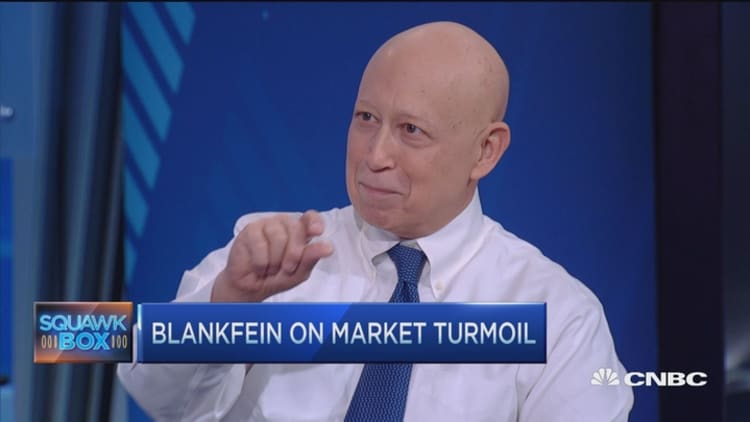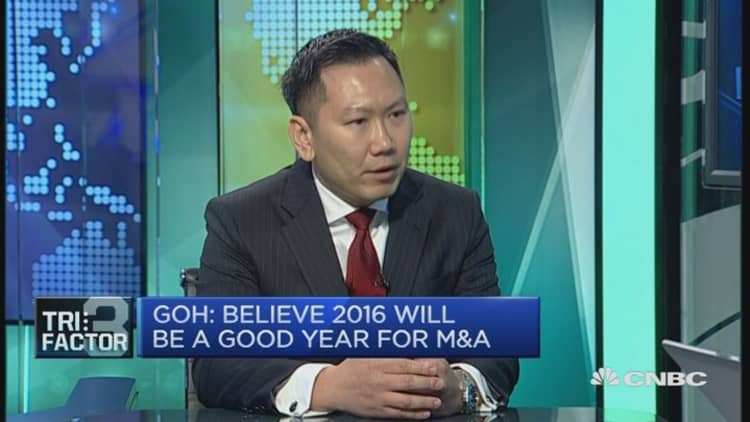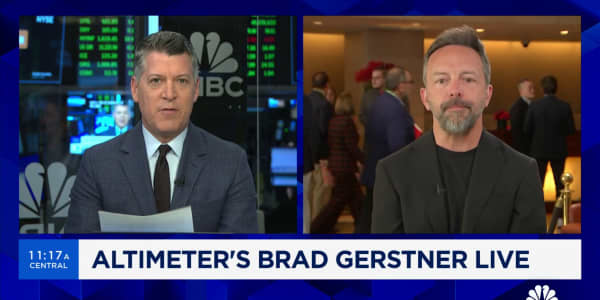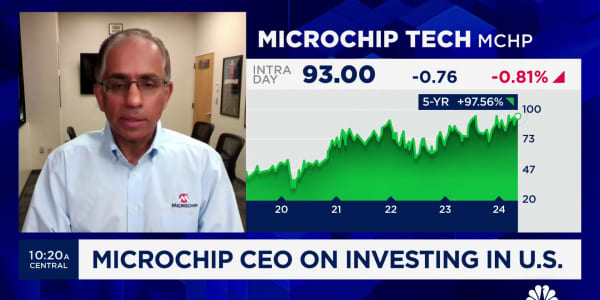Last year was bad for private equity. 2016 isn't shaping up to be any better.
Private equity firms' shares have underperformed market benchmarks to begin the year as investors price in recession fears and the rising cost of credit for deals.
Leveraged buyout firms did a paltry 116 deals globally in January, according to data from Dealogic, which tracks and analyzes mergers and acquisitions. It's less M&A by volume than the industry has done in the month of January in more than a decade. The $5.15 billion in value of deals private equity did last month is the least investors have spent in a January since 2009, when global credit markets were still slow in the wake of the global financial crisis.
"It's the credit markets," said Kenneth Leon, equity analyst from S&P Capital IQ. "When they seize up, you can't get deals done."
Exits — the sales of companies owned by private equity firms that mark a successful deal — are also down. In the wake of the initial public offering window slamming shut to begin the year, this shouldn't be a shocker anywhere on Wall Street.

Dealogic said there were a scant 53 exits globally for private equity in the first month of 2016, which marks the least the industry has racked up for a January since 2010. It also marks a decline of nearly 40 percent in deals, by number; the $13.99 billion in deals globally is about 25 percent less than the value of deals that took place in January 2015.
For many on Wall Street, the M&A whimper at the beginning of the year was anticipated. Several deals have been held up as private equity investors have struggled to put together financing to get transactions completed.
It comes as private equity firms have taken a beating in public markets over the last 12 months. As of early afternoon trading Wednesday, Blackstone Group and Oaktree Capital respectively lost 30 percent and 20 percent over the last 12 months and Apollo Global Management and KKR were down more than 40 percent each over the same period. Apollo and Blackstone each missed their fourth-quarter earnings expectations; Oaktree and KKR will reveal earnings next week.
Read MoreGoldman's Blankfein: US economy not off the rails
Some PE execs are betting their firms have hit a bottom: on Wednesday, as Apollo announced an earnings miss, the firm revealed it would buy back $250 million in stock, and CEO Leon Black told analysts he felt the company is undervalued.
It's not clear if private equity stocks have hit a bottom, but the executives leading these firms have found discounts elsewhere.

After Apollo's earnings miss, senior managing director Josh Harris told analysts on the firm's conference call that it accelerated its pace of distressed investing to close out 2015.
"Our investment team began buying debt in companies they have tracked for years," he said.
Read MoreTraders see warning signs in US bond market
Coming after back-to-back years of $4 trillion in global M&A, Leon said that with the slow start to 2016, even matching last year's deals tally would be viewed as a positive.
One Wall Street banker is holding out optimism. The banker, who asked to not be named because he is not authorized to speak to the media, realizes it's in his best interest.
"As soon as markets calm, it's back to work," he told CNBC.com. "Banks are slaves to PE fees, so if there's a deal to be done, they'll do it."






